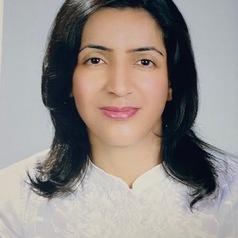
Akram Mahani
Assistant Professor at Johnson Shoyama Graduate School of Public Policy, University of Regina
Dr. Akram Mahani is an Assistant Professor at Johnson Shoyama Graduate School of Public Policy, University of Regina located on Treaty 4 Territory, and a researcher at Saskatchewan Population Health and Evaluation Research Unit (SPHERU).
Akram has wide-ranging empirical interests and background with her research spanning across multiple health policy, population health, and health services research areas. She has more than 20 years of experience in research, teaching, administration, and leadership in multi-disciplinary and applied settings across seven universities in three countries: Canada, England, and Iran. She has published in the leading peer-reviewed journals in the fields of health policy, public health, and health promotion. In 2013, Akram founded the International Journal of Health Policy and Management (known as IJHPM) and served as its inaugural editor-in-chief until late August 2021.
Akram’s current research focuses on healthy sustainable cities and communities for all with a focus on health equity. She has received funding from CIHR to examine the role of cross-sectoral collaboration to improve outcomes of children and youth in vulnerable context. In a project funded by SHRF, she investigated integration of health and equity into urban design and urban planning policies and decisions. Building on this research findings and in close collaboration with multiple stakeholders and knowledge users, she is currently co-designing a large-scale research project on the impact of urban design on health outcomes with a focus on mental health. In another project funded by SHRF, Akram is investigating how municipalities work in partnership with local public health systems to enhance population health outcomes and reduce health inequalities. Akram has led another project on the formalized partnerships between municipalities and academic institutions across Canada to see how these partnerships bridge the science-policy gap.
Less ![]()
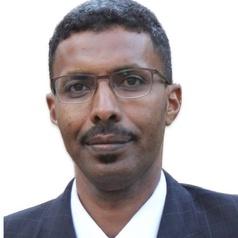
Akram Ahmed Elkhalifa
Associate Professor of Architecture, University of Khartoum
Dr. Akram is an associate professor of architecture and a licenced architect who has acquired over 23 years of extensive experience on architecture in Sudan and the linkage between education, research and practice in the field of architecture with specific focus on construction management and economics, technologies, and building materials. Dr. Akram is very active and interested in research and projects focusing on attainment of sustainable development goals (SDGs), the field in which he conducted several studies and researches from different perspectives. He is a registered as a “Specialized Engineer” at the Sudanese Engineering Council and received recently the fellowship of the Sudanese Institute of Architects (SIA) of which has been been a member since 2001, this fellowship allows him to be registered as consultant engineer at the Engineering Council. Dr. Akram accumulated extensive experience in professional practice through his involvement in design and consultancy services, feasibility studies, real estate appraisal and investment, market analysis, etc. Through this extensive experience nationally and internationally, he managed to hold leading positions both in the academy as well as in the professional practice, as he was the former dean of the Faculty of Architecture, University of Khartoum (2019 – 2022) and he is also the co-founder and the General Manager of a consultancy firm “OPTIMA for Consultancy, Real Estate Valuation, and Management”. As a way of linking education, research, and practice he delivered and coordinated multiple CPDs courses in different fields within the scope of architecture and construction management. He has many publications in international journals and international conferences proceedings.
Academic Qualifications:
- 2000 BSc. Architecture; Faculty of Engineering & Architecture, UofK.
- 2004 MSc. Real Estate Management; KTH Royal Institute of Technology, Sweden
- 2012 Ph.D. Architecture; University of Camerino, Italy.
Research interest:
- sustainable development, climate change resilience, construction technology & innovative materials, construction economics, and low-cost housing
Less ![]()
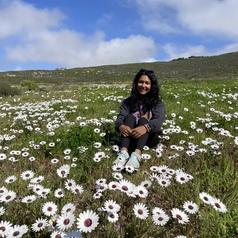
Akshata Mehta
PhD Candidate, Department of Biodiversity and Conservation Biology, University of the Western Cape
I am a research associate and PhD Candidate at the Department of Biodiversity and Conservation Biology at University of the Western Cape, in Cape Town, South Africa. My research areas of interest include marine social-ecological systems, human dimensions of marine and coastal ecosystems and the marine bioeconomy. I am passionate about science communication and engagement, as well as exploring the role of traditional social-ecological knowledge and local communities in marine conservation.
Less ![]()
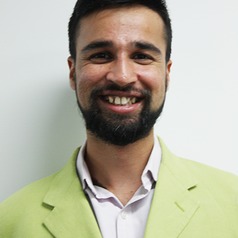
Akshay Vij
Associate professor, University of South Australia
Akshay Vij is an Associate Professor at UniSA Business. He has previously worked as lecturer and post-doctoral scholar at the University of California (UC) Berkeley. He received his Ph.D. in Civil and Environmental Engineering in 2013, also from UC Berkeley. Vij’s research has made significant contributions to the development of statistical methods for the study of human behaviour, and their application to different contexts, such as transport, urban and regional development, and labour markets. Since his move to Australia in 2015, Vij has collaborated extensively with industry and government partners on research grants totalling roughly $4.5 million to undertake research that has addressed major practical challenges facing these different sectors.
Less ![]()
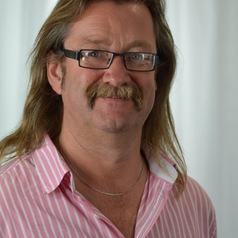
Al Rainnie
Adjunct professor, UniSA Business, University of South Australia
Al Rainnie is an Adjunct Professor within UniSA Business, University of South Australia and the Department of Management, Curtin University.
Less ![]()
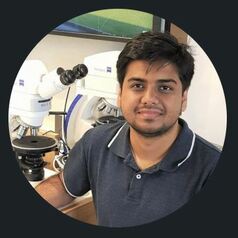
Al-Tamini Tapu
Geoscientist, The University of Queensland
Completed BSc (Hons - 1st class), MS by research (1st class) and PhD in Geology. PhD completed in Dec 2022 studying the eastern Australia hotspot volcanic chain. Currently working as a Geoscientist at the Geological Survey of Queensland.
Less ![]()

Alain Naef
PhD Candidate in Financial History, University of Cambridge
Alain Naef is a PhD student in financial history at the University of Cambridge and a Teaching fellow in the economics department. He is pursuing a PhD on central bank intervention on the foreign exchange market. He has been teaching at the Economic History department of the London School of Economics and was a research associate at Judge Business School. He holds a bachelor in History, an MBA (Geneva and Wharton) and an MSc in Economic History (LSE). He won the Hunt price for best LSE economic history dissertation and was awarded a price by the Cambridge Society of Applied Research (CSAR) for his work on central bank intervention.
His research is funded by the Economic and Social Research Council (ESRC) and he has been awarded various grants from the Bank of France, Santander, the Economic History Society and St Edmunds college. His main research interest is to understand how central banks influence exchange rates.
Email address: an445[at]cam.ac.uk
Less ![]()
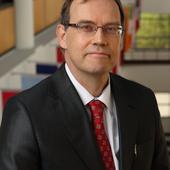
Alain Verbeke
McCaig Chair in Management, Professor of International Business Strategy, University of Calgary
Less ![]()
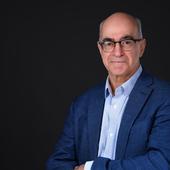
Alain-G. Gagnon
Professeur titulaire, politique québécoise et canadienne, Chaire de recherche du Canada en études québécoises et canadiennes, Université du Québec à Montréal (UQAM)
Less ![]()
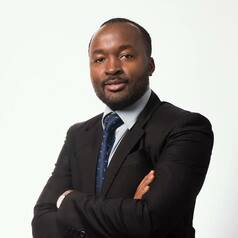
Alain-Guy Sipowo
Professeur adjoint de victimologie à l'École de criminologie, Université de Montréal
Alain-Guy Sipowo est titulaire d'un doctorat en droit international pénal de l'Université Laval, LL.D (2014). Il a bénéficié d'une bourse CRSH pour des études postdoctorales sur les droits des victimes des sociétés multinationales au Centre pour le pluralisme juridique de l'Université McGill de 2015 à 2017. Il a ensuite obtenu le Catalyst fellowship de l'Université York pour un séjour de recherche à Osgoode Hall Law School à Toronto de 2019 à 2020. Le 1er décembre 2021, il est entré en fonction comme professeur adjoint de victimologie à l'École de criminologie de l'Université de Montréal. Ses intérêts de recherche portent sur les droits des victimes d'actes criminels, les droits de la personne, la justice pénale (nationale et internationale), la justice transitionnelle et le constitutionnalisme de conflit ou post-conflit. Il est membre du Barreau du Québec et chercheur régulier au Centre de justice pour les victimes d'actes criminels ainsi qu'au Centre international de criminologie comparée de l'Université de Montréal.
Less ![]()

Alan Bain
My work is focused on the whole-of-organization challenge of making schools and universities better at learning and teaching. I have been engaged in the design and/or leadership of major organizational change projects in Asia, the Americas, and Australia. My approach has attracted grants, contracts and direct funding for software system development, transforming learning spaces, human resource models, curriculum innovation, and comprehensive organizational design.
My books include Transforming the Measurement of Learning and Teaching in Higher Education. Routledge (Bain & Drengenberg, 2016); Rising to the Challenge of Transforming Higher Education. Springer (Bain & Zundans-Fraser, 2016); The Learning Edge: What technology can do to educate all children. Teachers College Press (Bain & Weston, 2011); The Self-Organizing School. Rowman & Littlefield (Bain, 2007). I am currently co-writing the higher education sequel to the Self-Organizing School, The Self-Organizing University (Bain & Zundans-Fraser, forthcoming 2017).
Less ![]()
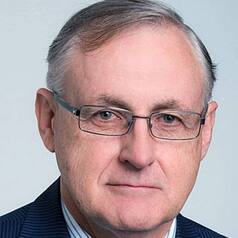
Alan Bollard
Professor of Economics, Te Herenga Waka — Victoria University of Wellington
Dr Alan Bollard is a Professor of Practice at the School of Government, Wellington School of Business and Government, and inaugural holder of the Chair for Pacific Region Business. The Chair is intended to help the Business School focus on Asia-Pacific economies.
In addition, he is Chair of the newly-formed Infrastructure Commission, Chair of the cross-university Centres for Asia-Pacific Excellence, and Chair of the New Zealand Portrait Gallery. He is NZ Governor of the Economic Research Institute for ASEAN and East Asia.
From 2012 - 2018 Alan was the Executive Director of the APEC Secretariat based in Singapore, the world’s largest regional body that promotes trade, investment and sustainable economic growth in the Asia-Pacific. In 2021 APEC will be hosted by New Zealand.
Prior to joining APEC, Dr Bollard was the Governor of the Reserve Bank of New Zealand from 2002 to 2012. In that position, he was responsible for monetary policy and bank regulations, helping steer New Zealand through the global financial crisis.
From 1998 to 2002, Dr Bollard was the Secretary to the New Zealand Treasury. As the government’s principal economic adviser, he managed the Crown’s finances and helped guide economic policy. He has served as New Zealand’s Alternate Governor to the International Monetary Fund, the Asian Development Bank and the World Bank.
From 1994 – 2008, he was the Chairman of the New Zealand Commerce Commission. Prior to this from 1987 to 1994 he was Director of the New Zealand Institute of Economic Research. He has a PhD in Economics from the University of Auckland.
Dr Bollard has helped rebuild the famous MONIAC hydraulic model of the British economy. He has also designed a computer simulation game called OIKONOMOS where you play at being Minister of Finance.
He wrote a best-selling account of the GFC called Crisis: One Central Bank Governor and the Global Financial Collapse. He has published several novels: The Rough Mechanical and The Code-cracker and the Tai Chi Dancer. He has also written a biography of famous economist Bill Phillips, and a popular economics book Economists at War.
In 2012 he was honoured as a Companion of the New Zealand Order of Merit. He is a Fellow of the NZ Royal Society. He also has honorary doctorate degrees from the University of Auckland and Massey University.
Less ![]()
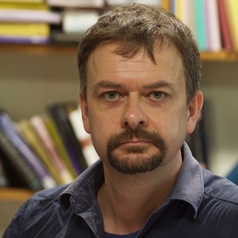
Alan Davison
Associate Professor and Head of School, Arts, University of New England
I am a career academic with training in musicology. Most of my early research was on portraits of musicians, then music and visual culture more generally. Most recently I am working in neuroaesthetics, brain cognition and music.
Less ![]()
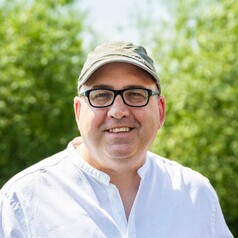
Alan Dixon
Professor of Sustainable Development, University of Worcester
Alan is an interdisciplinary geographer and human ecologist with research interests in sustainable development and social-ecological systems, especially in the global south. Much of Alan's work has focused on the importance of wetland environments at the community level, where he has explored how local knowledge, social capital, nature-based solutions and common property resource institutions contribute to sustainable management strategies that produce win-win outcomes for both local peoples’ livelihoods and wetland ecosystem services.
Alan has been involved in various participatory action research and consultancy projects, ranging from ESRC-funded research examining the role of local institutional arrangements in wetland management in Ethiopia, to work undertaken for the FAO that led to the development of global Guidelines for Wetland-Agriculture Interactions. He has worked with the NGO Self Help Africa in Malawi and Zambia to develop and disseminate a climate-resilient ‘Functional Landscape Approach’ for wetland and catchment management, and in Malawi he works with sustainable agriculture NGO Tiyeni. As well as informing wetland policy-making and management practice, this work has contributed to food security and built sustainable and resilient livelihoods in many parts of sub-Saharan Africa.
Alan has co-authored two editions of ‘Africa: Diversity and Development’, which has become a key text in geography, international development, and African studies courses around the world. He also co-authored the Routledge book ‘Wetland Management and Sustainable Livelihoods in Africa,' which sets out a new agenda for wetland management in the 21st century.
Less ![]()
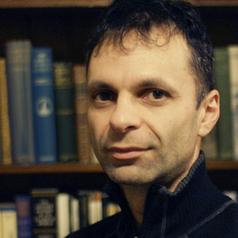
Alan Dorin
Associate Professor, Faculty of Information Technology, Monash University
Alan Dorin is Associate Professor of Computer Science at Monash University, Melbourne, Australia. Here he leads the Computational and Collective Intelligence group in the Department of Data Science and AI. His research covers Artificial Life and spans ecological and biological simulation, artificial chemistry and biologically-inspired electronic media art. Alan also studies the history of science, technology, art and philosophy, especially as these pertain to Artificial Life. He is (co) editor-in-chief of the journal, Artificial Life (MIT Press).
Less ![]()
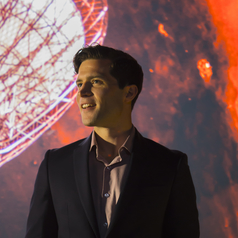
Alan Duffy
Research Fellow, Swinburne University of Technology
I'm a theoretical astrophysicist and cosmologist, investigating how galaxies form, the nature of dark matter and the large scale properties of the Universe.
To study the evolution of galaxies and their interaction with dark matter, I create billion-particle model universes on supercomputers around the world.
This has resulted in numerous refereed research articles, public interviews and presentations at both Universities/Conferences and public outreach events ranging from planetarium shows to pubs.
I am particularly excited by spreading the latest discoveries to as wide an audience as possible.
Less ![]()
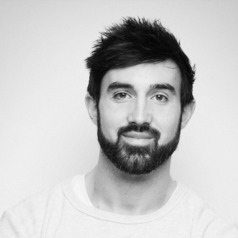
Alan Flanagan
Postdoctoral Research Fellow in Chrono-nutrition, University of Surrey
I'm a postdoctoral research fellow in chrono-nutrition at the University of Surrey in the UK, and hold a PhD in chrono-nutrition and master’s degree in nutrition science from the same institution. I'm the founder of Alinea Nutrition, an online education hub for nutrition and healthcare professionals, and also Research Communication Officer for Sigma Nutrition where I co-host the evidence-based nutrition Sigma Nutrition Radio podcast with founder, Danny Lennon. Originally a lawyer by background in Dublin, Ireland, I spent a decade practising as a barrister before moving into science.
Less ![]()
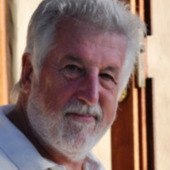
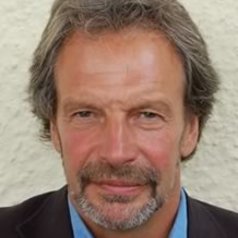
Alan Gregory
Alan Gregory is a Professor of Corporate Finance. Prior to taking up this position, he held professorial positions at both the University of Wales, Aberystwyth, and the University of Glasgow. In addition to his position at Exeter, he was a full panel member of the Competition Commission for two successive for year terms until September 2009 and is now External Advisor to the Commission‘s Finance and Regulation Group.
His consulting experience includes acting as advisor to one of the largest accounting firms on a number of issues, advising HM Treasury, and consulting for fund managers on investment strategies and asset allocation strategies. His work at the Competition Commission involved being a panel member on a number of inquiries, including a regulatory inquiry into airport pricing, market inquiries into domestic bulk liquid petroleum gas and the UK grocery market, and merger inquiries relating to the GUS / Littlewoods mail order operations and the takeover bids for the London Stock Exchange by Euronext and Deutsche Börse. In addition, he has acted as a consultant to other inquiries including the mobile phone and storecards inquiries. He has also undertaken expert witness work for the Treasury Solicitors’ Department, and in connection with Australian Gas Distribution pricing cases.
My current research interests are as follows:
The general area of market-based empirical research, particularly with regard to the robustness of conclusions that can be drawn from such studies in the light of documented risk factors. At present, this interest principally focuses upon the areas of take-overs and mergers together with returns to, and valuation of, corporate social responsibility agendae. Related work has focused on market reaction to directors’ trading activity, and the success of initial public offerings. A Leverhulme research grant of approximately £78k funding work on directors’ dealing around takeovers has recently been completed.
The empirical estimation of cost of capital, which has included the award of a an ESRC Grant of approximately £300k (started in December 2012). Outputs to date include a recent JBFA paper the empirical testing of the Fama-French and Carhart models in the UK, and a working paper to be presented to the BAFA Conference later in 2016 on beta estimation. Both these papers are with Dr Rajesh Tharyan and Dr Shan Hua, with whom I provide downloadable data on Fama-French style portfolios and factors for the UK and the ESRC grant is, inter alia, to to support the regular updating of these data for benefit of UK academic researchers via the Xfi website. I am lead researcher on the grant with three other co-reaserachers at Exeter.
My interest in CSR has included two studies of the performance of ethical and non-ethical UK unit trusts which were published in the Journal of Business Finance and Accounting (JBFA). Current work is investigating the returns to, and market valuation of, CSR in relation to the US and two papers have been published in Journal of Business Ethics on this theme. A final paper on eranings persistence and firm value is forthcoming in JBFA.
I have had a long standing interest in the long run returns to UK acquirers. This led to me being invited to give a keynote paper at the 2015 ICAEW “Better Markets” Conference. The paper, “How far does financial reporting allow us to judge whether M&A activity is successful?” is forthcoming in Accounting and Business Research.
Less ![]()
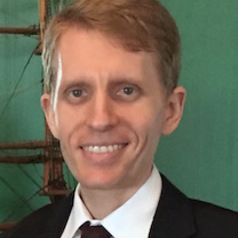
Alan Jern
Assistant Professor of Psychology, Rose-Hulman Institute of Technology
I’m a cognitive scientist and Assistant Professor of Psychology at Rose-Hulman Institute of Technology. I use computational models and behavioral experiments to study how people think and reason. My primary research interest is social cognition: how people think about other people. I am also interested in how people learn and use concepts, and how people revise their beliefs after seeing new evidence.
Less ![]()
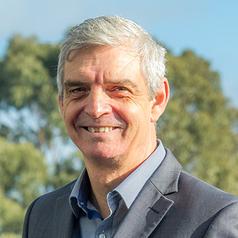
Alan Labas
Lecturer in Management, Federation University Australia
Alan Labas is a management lecturer in the Global Professional School, Federation University Australia. Alan’s research focuses on knowledge management with an emphasis on regional business advisory knowledge transmission. Specifically, he has examined the relationship between professional business advisor (PBA) knowledge and the knowledge transmission actions undertaken by such advisors when addressing the knowledge requirements of businesses. He has also collaborated on research in tourism, marketing, event management and circular economy solutions. Alan undertakes a practical application of the Critical Realist research paradigm to explain how human agency, social structures, and mechanisms interact in the process of causing an event.
Less ![]()
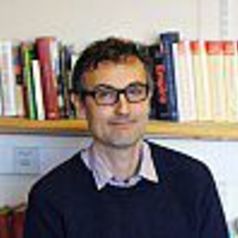
Alan Lester
Alan Lester's first degree was from the University of Cambridge and his PhD from the University of London. He has been at the University of Sussex since 2000, becoming Professor of Historical Geography in 2006 and the University's first Director of Interdisciplinary Research in 2013. He has held visiting lectureships at Rhodes University and the University of Fort Hare, an Erskine Fellowship at the University of Canterbury and an inaugural fellowship in humanities at La Trobe University
His role is as director of Interdisciplinary Research, Professor of Historical Geography, and co-director of the Colonial and Postcolonial Studies Network
He has have facilitated projects in collaboration with Kew Gardens, the British Library, the National History Museum, the Met Office and various humanitarian and global health-oriented NGOs. As director of Interdisciplinary Research he is now engaged in a wide range of such collaborations.
His is also international partner on the Australian Research Council-funded project, 'Minutes of Evidence', based at the University of Melbourne. Working with a number of state and Aboriginal organisations, this has seen a performance of the play Coranderrk: We Will Show the Country in a number of venues including the Sydney Opera House. The play is a verbatim re-enactment of a nineteenth century colonial commission of inquiry into an Aboriginal reserve and it lays at the heart of new teaching materials and approaches in Victoria.
Less ![]()

Alan Llwyd
Professor of Welsh, Swansea University
Alan Llwyd is one of Wales’ most prominent poets for generations. In 2023, he won the Chair in the Llŷn and Eifionydd Eisteddfod. Previously, he managed to win the 'double', namely the Chair and the Crown in the same year - twice - in 1973 and 1976. He is the first poet since the relaxation of the ‘twice only’ rule to win the Chair for the third time.
Alan lives in Morriston, Swansea and was born in Dolgellau in 1948. He lived in the village of Llan Ffestiniog in Meirionnydd until 1953, and from the age of five he grew up on a farm in Llŷn. He spent the rest of his childhood as well as his adolescence in Llŷn. He was a pupil at Ysgol Botwnnog until 1967, when he went to the Bangor University to study Welsh.
He graduated in 1970, after which he worked in the Awen Meirion bookshop in Bala for two years, before moving to Swansea in 1976 to work as an editor for Gwasg Christopher Davies. Between 1980 and 1982 he worked for the Welsh Joint Education Committee in Cardiff, and from 1982, he worked full-time for Cymdeithas Barddas.
He worked for Barddas for almost thirty years, promoting poetry, and editing the Society's magazine and publications. He published more than 300 books during his periods as publisher and editor for various organisations. Alan Llwyd, together with the late Penri Jones, founded Llanw Llŷn, Pen Llŷn's local paper.
As a poet and writer, he has published more than 80 books, including three complete collections of poems. It won the Nonfiction-Creative Book of the Year category in 2013 and 2020, and the Poetry Book of the Year category in 2019. In 2018, it won the Cwlwm Cyhoeddwyr Cymru Award for a special contribution to the publishing world. He has won over 50 literary awards so far.
In 1993, he won the BAFTA Cymru award for Best Film Script in Welsh, namely the script of the film Hedd Wyn, which was nominated for an Oscar.
Less ![]()
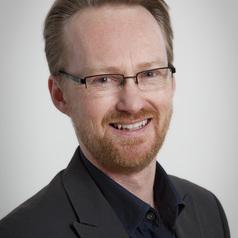
Alan March
Professor of Urban Planning, Faculty of Architecture, Building and Planning, The University of Melbourne
Dr Alan March is Professor in Urban Planning. He undertakes research and teaching in the area of urban planning and disaster risk reduction, including bushfire.
Alan has twice won the Global Planning Education Network prize for Best International Planning Paper (2007, 2011). His teaching includes disaster risk reduction, urban design, planning law and planning theory subjects, and he was awarded a Faculty teaching prize in 2007. Alan has successfully supervised over 80 student theses encompassing a range of urban design and planning research topics. He has successfully supervised eight PhD theses to completion. Alan was an Associate of the Melbourne Sustainable Society Institute and has been the Leader of the research theme Risk Resilience and Transformation & and of Cities and Towns.
Alan has practised since 1991 in a broad range of private sector and government settings and has had roles in statutory and strategic planning, advocacy, and urban design. He has worked in Western Australia, the UK, New South Wales and Victoria. Alan’s early career included projects as diverse as foreshore protection plans, rural to urban subdivision approval and design, the Mandurah Marina and Urban Design Guidelines for the Joondalup City Centre. In England, he has worked in brownfield and inner city redevelopment, including land assembly and urban regeneration projects. Alan has extensive experience in inner city redevelopment projects in Melbourne since 1996.
Alan's publications and research include examination of the practical governance mechanisms of planning and urban design, in particular the ways that planning systems can successfully manage change and transition as circumstances change. He is particularly interested in the ways that planning and design can modify disaster risks, and researches urban design principles for bushfire. His current work also considers the ways that urban planning is seeking to establish new ways to spatialise urban management.
Less ![]()

Alan McKay
Senior Research Assistant for the Centre for Football Research in Wales, University of South Wales
Less ![]()
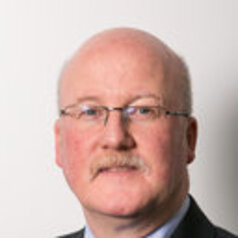
Alan Mckinlay
Professor of Human Resource Management, Newcastle University
Alan was awarded his DPhil from Nuffield College, Oxford University in 1986. His thesis was about how management strategies, power and skill played out in Clydeside shipyards and factories between the wars. The politics of skill remains one of his key interests, both historically and in the contemporary world of work.
Over the years Alan has researched and written about historical and contemporary management strategy and practices; unionisation; and new forms of work and organisation. He has examined these issues in many settings, from a Motorola factory making mobile phones, to Ford car factories and television studios. In the last five years Alan has published articles in Business History: Protestantism and the rise of capitalism; writing gender into business history; competitive capabilities in jute; and management development in Tata after 1947. He has also published book chapters and articles on governmentality and strategy, accounting and management, and networks and project organising in British television production. His most recent book is a political biography, Jimmy Reid: A Clyde built man, which was published by Liverpool University Press in September 2019.
Less ![]()
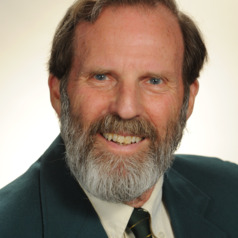
Alan Morrison
Professor of public interest and public service law, George Washington University
Alan B. Morrison is the Lerner Family Associate Dean for Public Interest & Public Service at GW Law. He is responsible for creating pro bono opportunities for students, bringing a wide range of public interest programs to the law school, encouraging students to seek positions in the non-profit and government sectors, and assisting students find ways to fund their legal education to make it possible for them to pursue careers outside of traditional law firms.
For most of his career, Dean Morrison worked for the Public Citizen Litigation Group, which he co-founded with Ralph Nader in 1972 and directed for over 25 years. His work involved law reform litigation in various areas including: open government, opening up the legal profession, suing agencies that fail to comply with the law, enforcing principles of separation of powers, protecting the rights of consumers, and protecting unrepresented class members in class action settlements.
He has argued 20 cases in the Supreme Court, including victories in Goldfarb v. Virginia State Bar (holding lawyers subject to the antitrust laws for using minimum fee schedules); Virginia State Board of Pharmacy v. Virginia Citizens Consumer Council (making commercial speech subject to the First Amendment); and INS v. Chadha (striking down over 200 federal laws containing the legislative veto as a violation of separation of powers).
He currently teaches civil procedure and constitutional law, and previously taught at Harvard, NYU, Stanford, Hawaii, and American University law schools. He is a member of the American Academy of Appellate Lawyers and was its president in 1999–2000. Among other positions, he served as an elected member of the Board of Governors of the District of Columbia Bar, a member and then senior fellow of the Administrative Conference of the United States, a member of the American Law Institute, and a member of the Committee on Science, Technology & Law of the National Academy of Science. He is a graduate of Yale University and Harvard Law School, served as a commissioned officer in the US Navy, and was an assistant U.S. attorney in New York.
Less ![]()
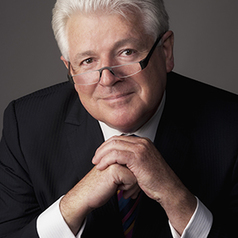
Alan Oxley
Chair, APEC Study Centre, expertise international trade law, economics, Asian regional development, RMIT University
Analyst of International Trade and Foreign Policy
Former Diplomat (postings in Singapore, UN New York and Ambassador, GATT Geneva
Director of Masters in International Trade course at RMIT University
Author "The Challenge of Free Trade" 1990 and "Seize the Future" 2000
Less ![]()
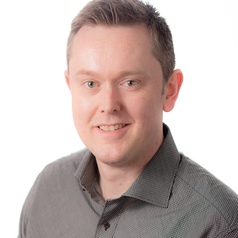
Alan Reid1
Associate Professor in Law, University of Bradford
Alan Reid is an Associate Professor in Law at the University of Bradford. He has taught law at various universities in England, Wales, Scotland and Switzerland during his 26-year career in legal academia. He is an experienced external examiner at both undergraduate and postgraduate level.
To date, he has successfully supervised four PhD students and has experience as a PhD examiner. He is an expert in the law of the European Union, UK Constitutional law and Information Technology law. His particular research interests lie in cybercrime and electronic communications law, particularly as regards the interception of communications by the State. He is the author of a number of undergraduate student textbooks on EU law, various legal journal articles concerning competition law, virtual currencies and state surveillance and book chapters on Scots law, online child protection, online privacy and virtual criminality.
He has been a legal consultant for Halsbury’s Laws of England and has written two editions of the Communications Law Reissue for the Stair Memorial Encyclopaedia of the Laws of Scotland, the Scottish equivalent of Halsbury’s. He has also been a legal consultant to ETSI, the European Telecommunications Standards Institute and has been a board member for a homelessness charity and a social housing charity as well as acting as a parent governor.
Less ![]()
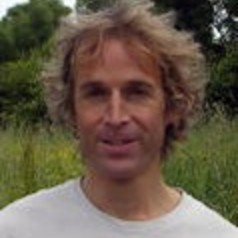
Alan Shipman
Alan Shipman is a lecturer in economics at the Open University.
Research interests:
Personal finance, currently focusing on the disintegration of insurance pools and the disincentives to household saving. Other active interests in: Chinese multinational business; impact of ‘academisation’ on knowledge; social economics; foundations of the market economy.
Less ![]()
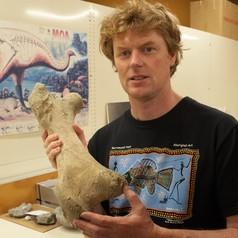
Alan Tennyson
Curator of Vertebrates, Museum of New Zealand Te Papa Tongarewa
My thesis research was on petrel (seabird) ecology on the Chatham Islands. I have since worked for Ecology Division DSIR/Landcare research radio-tracking kereru, The Forest & Bird Protection Society as a marine campaigner, the Department of Conservation in the head office Threatened Species Unit, as an Antarctic tour guide, and at the Museum of New Zealand Te Papa Tongarewa as the Birds Collection Manager, the Curator of Vertebrate Palaeontology and currently as a Vertebrate Curator.
Less ![]()
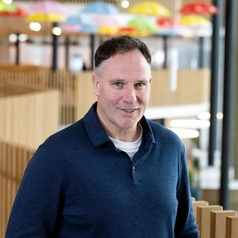
Alan Thomson
Senior Lecturer in Sport and Physical Education, University of Central Lancashire
Alan is the Programme Leader for the BA (Hons) Sport and Physical Education degree. With particular expertise in understanding teacher interactions and interrelations in physical education departments, his teaching contributes to a range of socio-cultural and pedagogical modules at undergraduate level and to the sociological element of the taught Masters programme. Prior to working at a number of universities, Alan had previously taught in secondary education. He is a Fellow of the Higher Education Academy.
Less ![]()
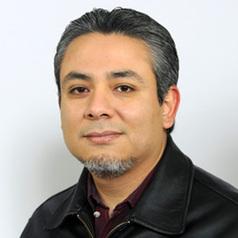
Alan Veliz-Cuba
Associate Professor of Mathematics, University of Dayton
Alan Veliz-Cuba is an Associate Professor at the University of Dayton. His research area is mathematical biology with applications to gene and neural networks.
Less ![]()
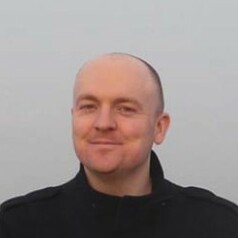
Alan Walker
Professor, School of Medicine, Medical Sciences and Nutrition, University of Aberdeen
I am a microbiologist with specific research interests in the bacteria that inhabit the gastrointestinal tracts of mammalian hosts. I studied for my PhD at the Rowett Institute and at the University of Dundee, specialising in gut microbiology and the role that intestinal bacteria play in the breakdown of dietary fibre. Following my PhD I spent eight years at the Wellcome Sanger Institute, a leading centre for genomic research, before moving to the University of Aberdeen where I began as a Senior Lecturer and am now a Professor (Personal Chair). My current research uses a combination of state of the art anaerobic culturing and DNA sequencing techniques to better characterise gut microbial communities and shed light on the roles these microbes play both in health and in disease.
Less ![]()
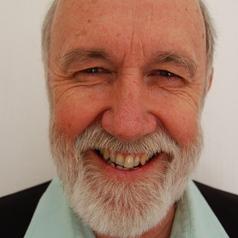
Alan Whitfield
Emeritus Chief Scientist, NRF-SAIAB, National Research Foundation
• BSc Zoology, Botany University of Natal, Pietermaritzburg 1974
• BSc (Hons) Zoology University of Natal, Pietermaritzburg 1975
• MSc (cum laude) Ichthyology University of Natal, Pietermaritzburg 1978
• PhD Estuarine Ecology University of Natal, Pietermaritzburg 1983
• DSc Estuarine Ichthyology Rhodes University, Grahamstown 2011
Less ![]()
- Market Data





















